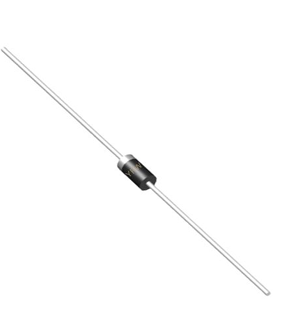Key Parameters for Analysis
Date:2025-06-17 Categories:Product knowledge Hits:474 From:Guangdong Youfeng Microelectronics Co., Ltd
3. Key Parameters for Analysis
3.1 Reverse Recovery Time (trr) As mentioned earlier,trr is one of the most critical parameters of a
fast recovery diode. It directly affects the switching losses in a circuit. In high - frequency switching applications, a longtrrcan lead to significant reverse recovery losses, which reduce the overall efficiency of the power conversion system. To measuretrr, a standard test circuit is used, which typically consists of a voltage source, a load resistor, and a high - speed switch. The diode under test is connected in the circuit, and the voltage and current waveforms across the diode are measured using an oscilloscope. The time interval from the moment the forward current drops to zero until the reverse current decays to a small value (usually 10% of the peak reverse current) is defined as trr .
3.2 Reverse Recovery Charge (Qrr)
Reverse recovery chargeQrrrepresents the total amount of charge that needs to be removed from the depletion region during the reverse recovery process. It is related totrrand the peak reverse current (Irm). Mathematically,Qrrcan be calculated by integrating the reverse current over the reverse recovery time.Qrralso contributes to the switching losses, and a lowerQrris beneficial for improving the efficiency of power electronics circuits. In addition,Qrraffects the electromagnetic interference (EMI) generated during the switching process. A largeQrrcan lead to higher - amplitude voltage and current transients, increasing the EMI level.
fast recovery diode3.3 Forward Voltage Drop (VF)
The forward voltage dropVFis the voltage across the diode when it is conducting in the forward direction. A lowerVFmeans less power dissipation in the diode during the conduction phase. However, there is often a trade - off betweenVFandtrr.
fast recovery diode designs that aim for a very fasttrrmay have a slightly higherVF, and vice versa. When analyzing the performance of a power circuit, engineers need to consider bothVFandtrrto achieve an optimal balance between conduction losses and switching losses.
3.4 Reverse Breakdown Voltage (VBR)The reverse breakdown voltageVBR
is the maximum reverse voltage that the diode can withstand without experiencing avalanche breakdown or zener breakdown. It is a critical parameter for ensuring the reliability of the diode in a circuit. If the reverse voltage applied to the diode exceeds
fast recovery diodeVBR, the diode may be damaged, leading to circuit failure. When selecting a fast recovery diode for a specific application, the expected maximum reverse voltage in the circuit should be well below the ratedVBRof the diode, usually with a certain safety margin to account for voltage transients and other operating conditions.

Previous:
Classification, Structure, and Principle of MOSFET
Next:
Analysis Methods
